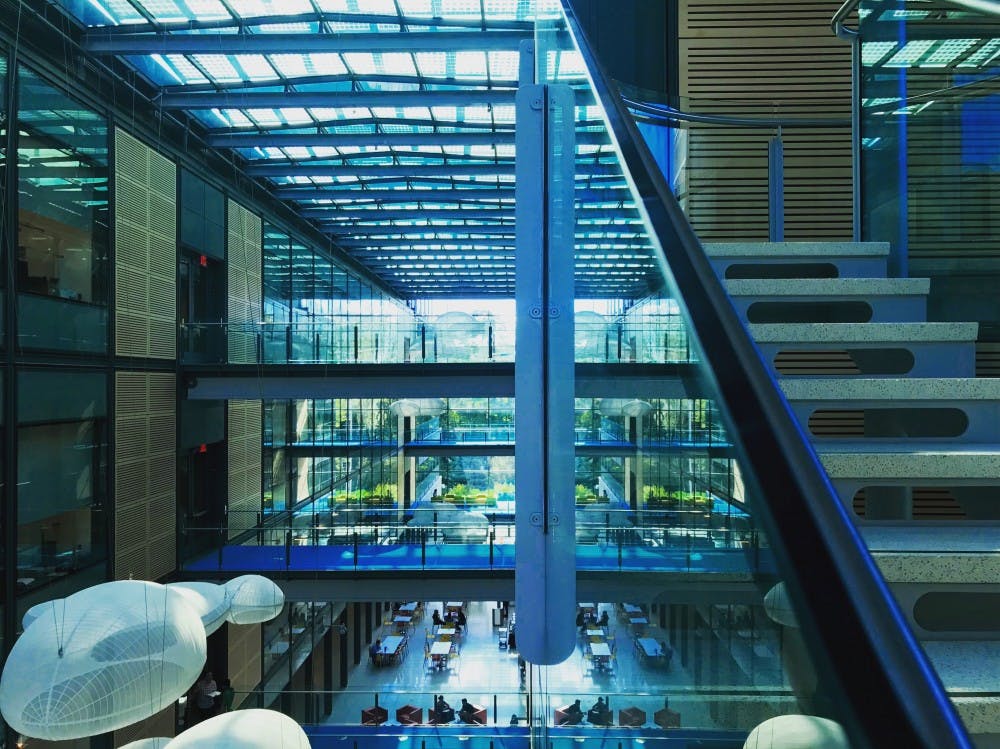Catalysts, the agents that speed the rate of chemical reactions, power chemistry in research and industrial applications in the modern world. A recent breakthrough has given us the chance to use materials more commonly found on earth in this critical function. The Princeton scientist behind that breakthrough, Dr. Paul Chirik, the Edwards S. Sanford Professor of Chemistry, was just named a 2022 fellow in the American Association for the Advancement of Science (AAAS) on Feb. 2.
Chirik was chosen as an AAAS fellow for pioneering the use of Earth-abundant metals, rather than less sustainable rare-earth metals, in the field of catalysis. Catalysis typically involves the use of metals like rhodium, palladium, and platinum, which are not only scarce within nature but can be expensive and dangerous — leading to the potential exploitation of raw resources from developing countries.
By contrast, Earth-abundant catalysis, as developed by the Chirik Group, relies on more prevalent types of metals, such as iron, to fuel catalysis.
The honor is one of the most prestigious titles in the country, given to those “who have been recognized for their achievements across disciplines, from research, teaching, and technology, to administration in academia, industry and government, to excellence in communicating and interpreting science to the public.”
In an email to The Daily Princetonian, Chirik elaborated on the fundamental importance of the development of Earth-abundant catalysis to sustainable chemistry.
“I hope that our [work] has changed the way chemists look at the periodic table. Catalysts have transformed society. Everyday products from medicines to fragrances to silicones rely on catalysts for their synthesis and manufacture,” Chirik wrote.
“From a more practical standpoint, catalysts [with] more Earth-abundant elements [mean] reduced costs and improved sustainability as mining of scarce elements has a large environmental footprint,” he continued.
Currently, catalysts powered by Earth-abundant metals have been employed for a number of real-world applications. Chirik emphasized silicone release coatings — the adhesive material on the back of labels that allows them to stick to surfaces — and silicone adjuvants that streamline herbicide dispersion over fields as some of the notable ways in which Earth-abundant metal catalysis has impacted common technologies used in daily life.
The Chirik Group’s iron catalysts are currently being examined as potential means of generating chemically recyclable plastics, or “materials that can be prepared from abundant hydrocarbon feedstocks.”
Chirik expressed optimism about the future of Earth-abundant metal catalysts in improving sustainability throughout industries including pharmaceuticals and silicones.
“The applications will continue to grow as many industries rely on precious metals and are concerned about their ‘elemental footprint’ as part of their sustainability efforts and would rather use more Earth-abundant catalysts,” Chirik wrote.
Members of the Chirik Group, including postdoctoral fellow William Whitehurst, emphasized the group’s influential contributions, commenting on how Chirik’s unique outlook shaped its groundbreaking approach to catalysis.

“Professor Chirik's research has targeted some of the most important catalytic reactions in synthetic chemistry — such as cross-coupling and enantioselective hydrogenation — which had been the exclusive domain of precious metal catalysts, and replaced these expensive metals with more abundant metals that will allow these chemistries to continue far into the future,” Whitehurst wrote in an email to the ‘Prince.’
“What is profound is that everyone that comes through Paul's group is influenced by his approach, which focuses on the interface between fundamental understanding of metal chemistry and translation to catalysis,” Whitehurst wrote. “Very few research groups in the world have the expertise to successfully work at this interface.”
Postdoctoral fellow Connor MacNeil echoed this view, commenting on Chirik’s drive to push boundaries and ask “the hard questions.”
“I think Paul's approach to sustainable chemistry is largely inspired by his worldview. He takes things as they are, pushing his research group to make contributions that will have practical applications in a changing world. There's no room for nonsense in the sustainability effort; there's too much at stake,” MacNeil wrote in an email to the ‘Prince.’
Chirik expressed gratitude to members of the Chirik Group for propelling this research forward.
“They are the ones that carry out the experiments and provide fresh perspectives on the problems we are trying to solve,” Chirik wrote. “I am fortunate to have worked with a tremendously talented group of individuals during my time at Princeton.”
Chirik advised young scientists to “never stop asking questions,” adding, “everything comes from something.”
“So much of our chemistry has evolved from asking fundamental questions: Why have people used palladium over iron in drug synthesis? What makes palladium special? Continuing to be curious leads to creativity and often game-changing solutions to long-standing problems,” Chirik wrote.
Chirik is one of twelve Princeton recipients of the AAAS fellowship in the last five years, and the only Princeton chemist in that period. Fields of Princeton recipients range from Prof. Jason Petta’s physics research on quantum dots to Prof. Dalton Conley’s sociological research on generational transmission of socioeconomic and health status. In 2019, former Princeton President and Professor of Molecular Biology and Public Affairs Shirley Tilghman was a recipient of the honor.
The AAAS fellowship recipients for this year will be honored at an award ceremony in Washington, D.C. this spring.
Amy Ciceu is a senior writer who covers research and COVID-19-related developments.
Please direct any corrections requests to corrections[at]dailyprincetonian.com.








